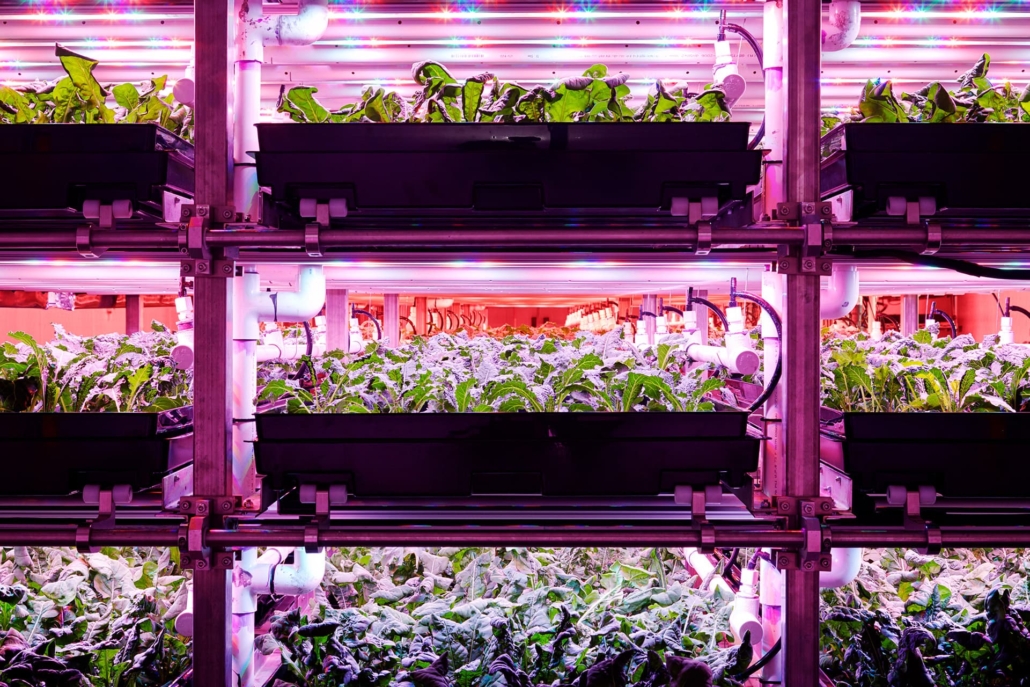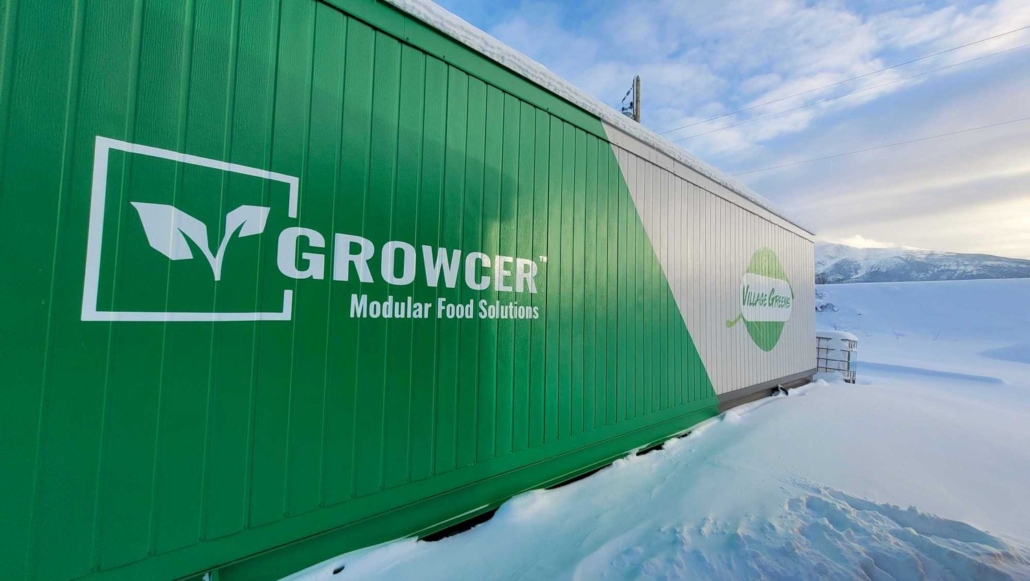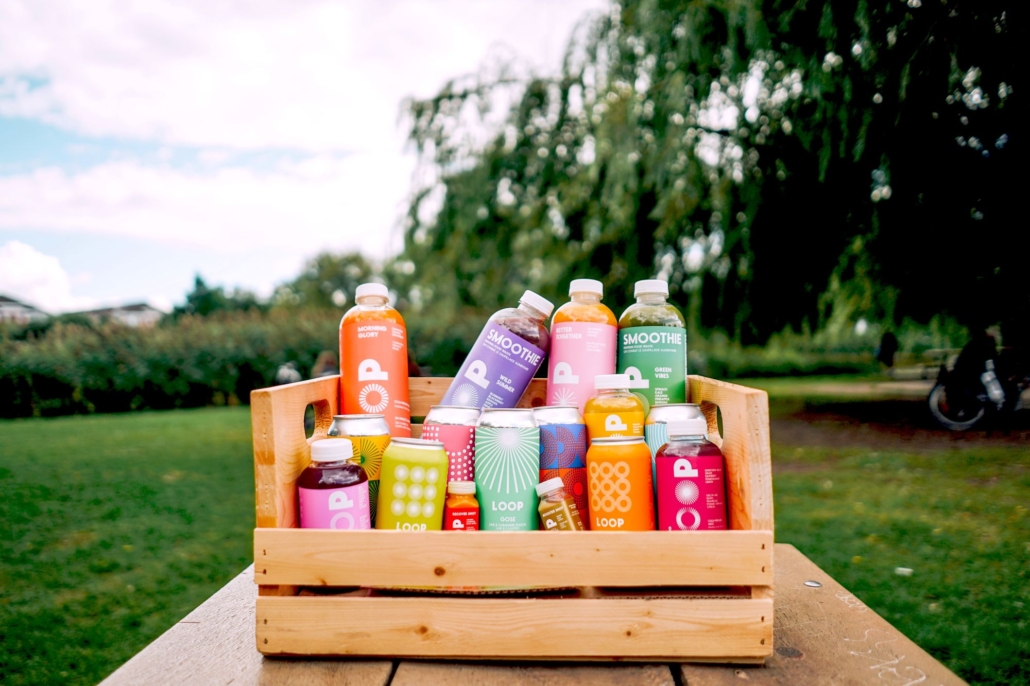3 next-gen companies innovate to combat food insecurity
Here’s how three businesses are leading in sustainable, innovative business practices to help feed North America and combat food insecurity.

When an industry has operated and created products the same way for decades, it can be difficult for companies to break free from tradition and forge their own path forward.
While being innovative can be time-consuming, costly and bring on additional challenges, the long-term impacts can increase a company’s sustainability, profits and overall success. In the food and beverage industry, many companies are taking the initiative to implement better, more sustainable and more efficient business practices.
Even if you aren’t operating in the food and beverage space (as are the following companies), you’ll find inspiration in their stories — and they may even spark an idea for how you can improve upon your own operations.
Next-level farming

When you think of farming, the image of a red barn beside endless acres of crops blowing in the wind might come to mind. But what if that sprawling land was turned sideways?
That’s the idea of vertical farming — growing crops upwards instead of across fields and completely altering the traditional approach to growing produce. And Elevate Farms is at the forefront of the industry as one of the first vertical farming facility manufacturers in North America, founded in 2018.
Their state-of-the-art facilities can achieve impressive results in growing farm-fresh food while limiting water usage, all by combining proprietary LED light technology with photobiology and robotic automation. This has allowed Elevate Farms to redefine what a “traditional” farm not only looks like, but what they can produce.
For example, while traditional farms take an average of 10 gallons of water to grow one head of romaine lettuce, Elevate Farms can do it with one gallon. This innovative technology allows for a higher crop yield per square foot of land. And this higher productivity can move us towards eliminating food insecurity in isolated areas such as northern communities in Alaska and the Yukon.
With 80% less labour needed compared to a traditional farm, 100% traceability due to blockchain technology and a 73% higher capacity than their competitors, it’s no wonder that Elevate Farms has made such a name for itself in the agricultural space.
Growing fresh food anywhere

Isolated areas often don’t have the suitable soil or growing conditions for vibrant, sustainable farms. As a result, they often face issues of food insecurity — forcing people to ship food in from elsewhere. This leads to extremely high grocery bills, lack of access to fresh and nutritious food, degradation of health in remote communities and other negative spinoff effects.
Enter Growcer, an agri-tech company founded in 2015 with a mission to reduce the issue of food insecurity in isolated areas, regions with poor soil quality or locations experiencing droughts. As a manufacturer of hydroponic (soil-less) container farms, Growcer can grow local produce anytime and anywhere. Whether in the Arctic or the desert, these container farms can grow fresh produce in as quickly as six weeks.
The company has also implemented an innovative new program with the goal of revitalizing gardening in remote Indigenous communities. This has given people access to fresh foods to which they wouldn’t have otherwise had access.
Turning food waste into profits

Every year, North Americans waste about 50% of all edible food produced. While some of it is unavoidable, the majority of the waste is due to stock management issues and consumer “pickiness.”
So what can be done to mitigate the waste?
That’s exactly what Loop Mission’s founders asked when they started the business in 2016 to repurpose rejected food. That journey started by turning unwanted fruits and vegetables — what they call the “outcasts of the food industry” — into delicious cold-pressed juices.
As a self-proclaimed “food waste fighting powerhouse,” Loop Mission has created a successful e-commerce business by selling their products direct to the consumer on their website. Meanwhile, they’ve also been gaining popularity in local brick-and-mortar stores, gaining another route into the competitive marketplace.
On top of creating an innovative product for consumption, Loop Mission subsequently became a leader in food waste management, saving more than 6,872 tons of fruits and veggies, 446 million litres of water and avoiding the emission of 5,483 tons of GHGs.
Innovating to fuel business growth
For any company looking to evolve, innovate and compete, they have one thing in common regardless of industry: the need for working capital and healthy cash flow.
All next-gen companies still need to meet the demands of payroll, R&D, manufacturing, supplier payments, promotion and distribution of their products. But if they don’t have incoming cash flow, stuck waiting for their customers to pay invoices, it can lead to cash cycle disruptions — holding them back from new ventures.
If that sounds familiar, there are ways to improve cash flow and keep innovating. With alternative funding solutions such as invoice factoring, Liquid Capital can help you unlock the power of your outstanding accounts receivables and access the working capital you need to disrupt, innovate and grow stronger.






